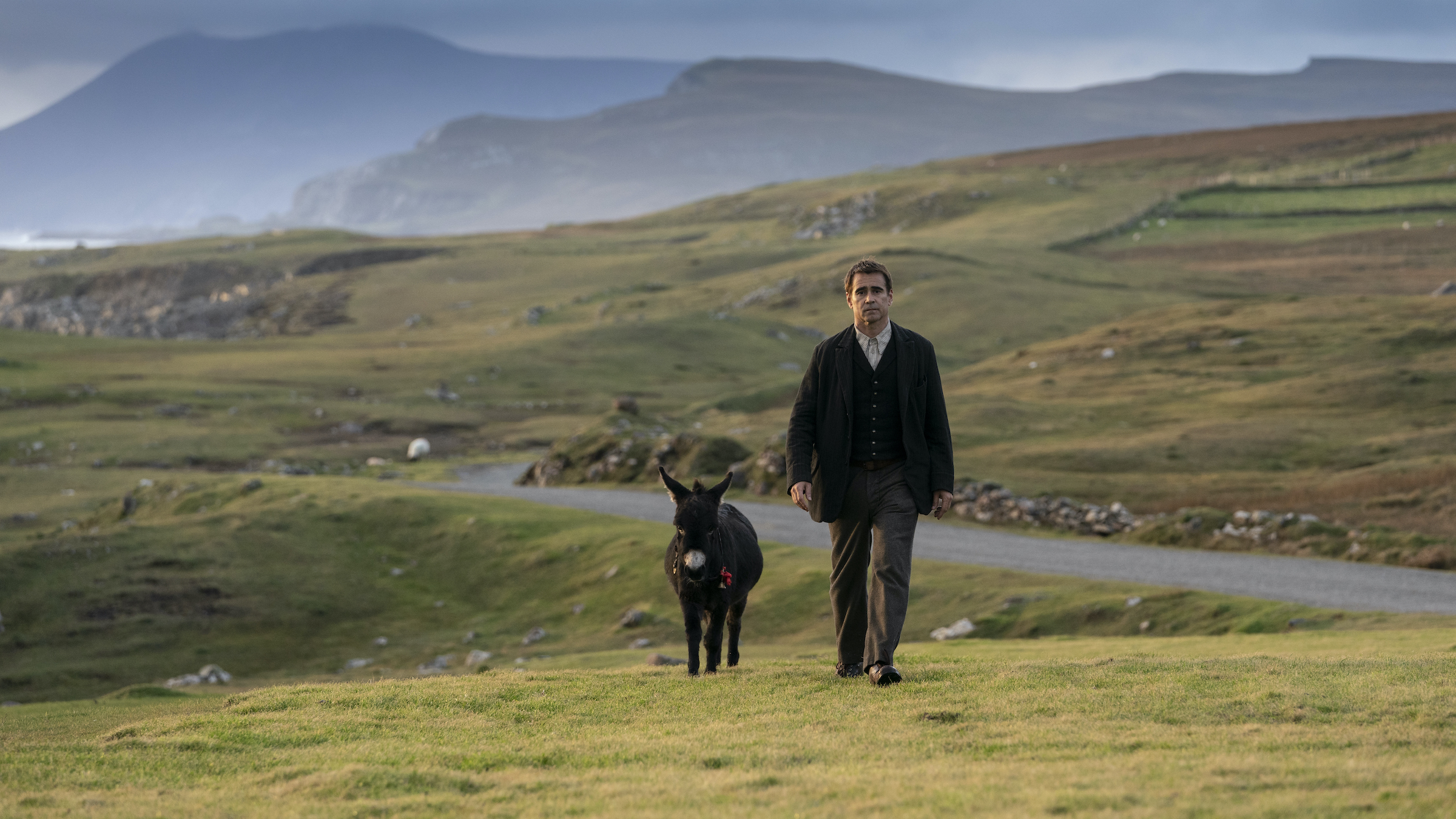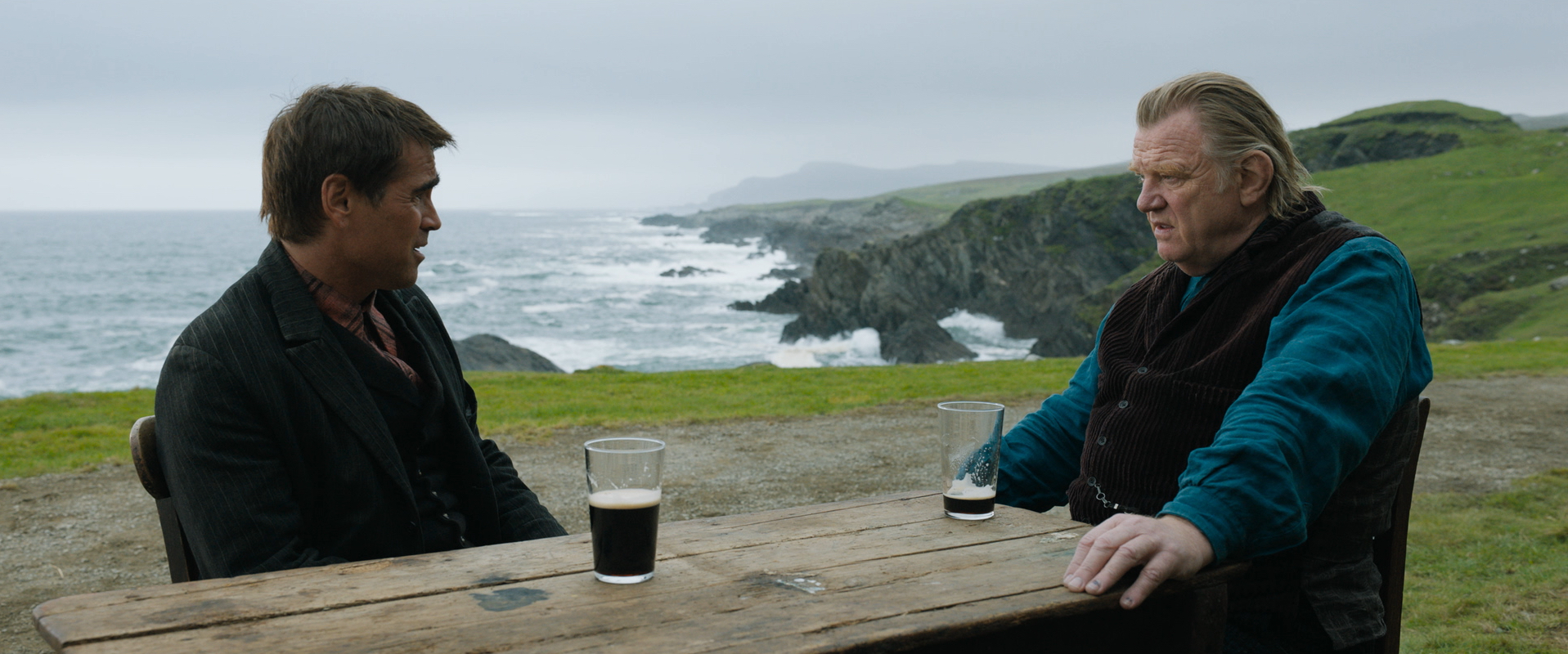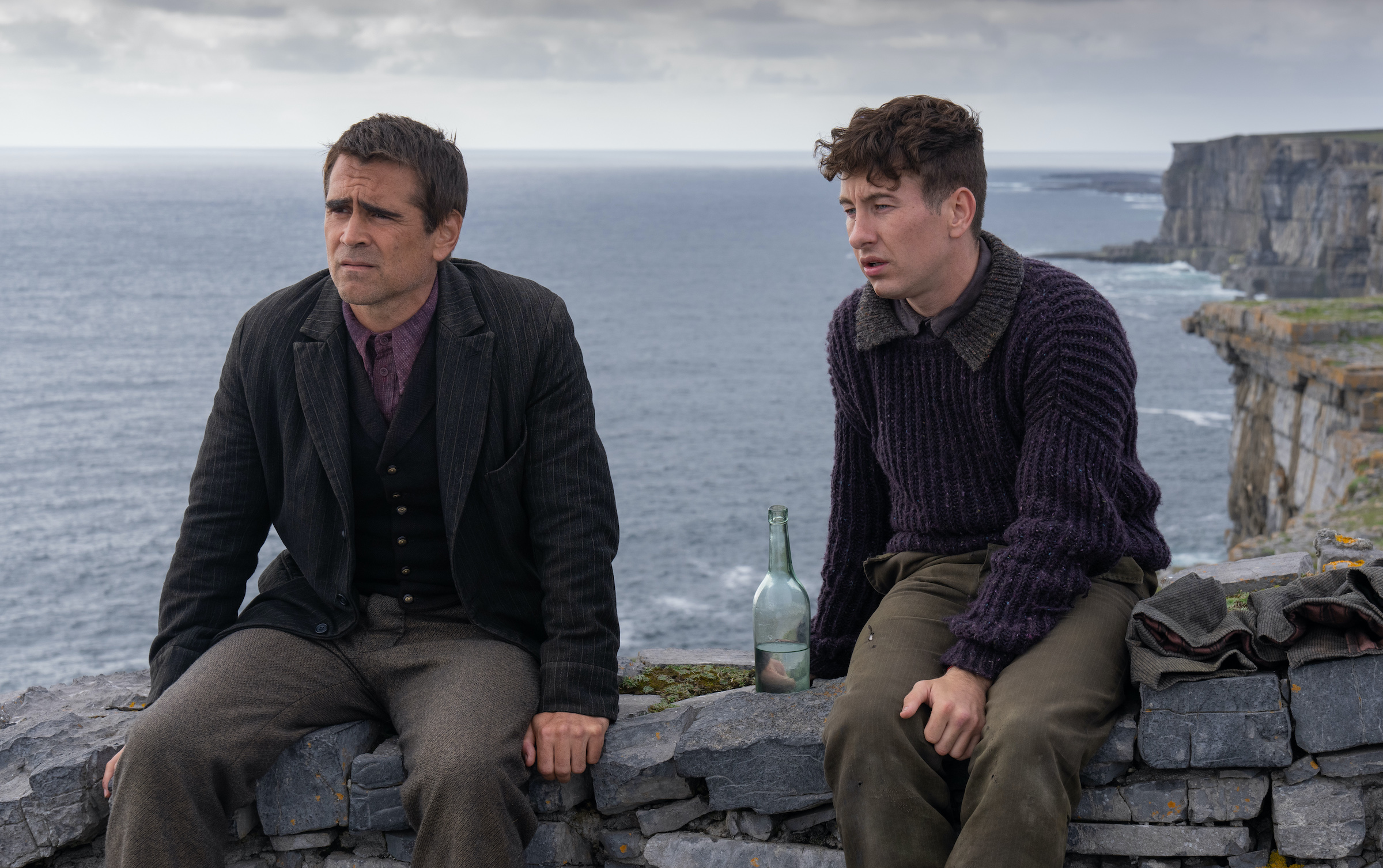
English-Irish playwright and filmmaker Martin McDonagh specializes in bitter-bleak semi-comedies about the tendency of human beings to be angry, defensive grudgeholders—yet gloriously, messily human nonetheless. Maybe the people who love his work—which includes movies like In Bruges, Seven Psychopaths and, perhaps the worst of them, that extended, belabored wink at heartland America, Three Billboards Outside Ebbing Missouri—talk themselves into being surprised by it, but surely they must be hip to his shtick by now. You always know that, in the end, one or more of his quaint, quirky characters is going to reveal a very dark heart.
That’s true, also, of McDonagh’s Banshees of Inisherin, which won three awards, including best motion picture, musical or comedy, at the 80th annual Golden Globe Awards. Yet this picture feels fresher and less forced than most of the writer-director’s recent work, and the key to its pleasures and heartbreak can be summed up thus: Colin Farrell and a miniature donkey.
Banshees is set in the waning days of the Irish Civil War, on a somber, rocky island off the coast of Ireland, a place where there’s not much to do but scowl at your neighbors and drink at the pub. Farrell’s Pádraic Súilleabháin is in the mind to do the latter, so he tramps through the grassy, stone-stubbled landscape to the cottage of his friend, Colm Doherty (Brendan Gleeson). But when he knocks on the door, and taps at the window, Colm refuses to answer, even though Pádraic can see his broad, stubborn back clearly inside. Baffled, Pádraic goes to the pub alone, only to trundle back to Colm’s house a few minutes later, trying to puzzle out what’s going on with his friend.

Read more: The 49 Most Anticipated Movies of 2023
It takes a few tries, but Colm eventually gives him a reason: A fiddler, songwriter and self-described lover of art, Colm has concluded that he can’t stand to listen to any more of Pádraic’s boring talk. “I don’t like you no more,” he says, simply, and Pádraic is knocked back. He is, as one character describes him, “one of life’s good guys.” He loves the animals he tends, especially his miniature donkey, Jenny, a comely sweetheart with alert ears and calm, winsome eyes; he believes Jenny should be allowed in the house, much to the dismay of his sister, Siobhan (the wonderful Kerry Condon). The two live there together, their parents long dead. Siobhan, who prefers reading to drinking and socializing, is the town oddity, though leaving seems impossible, and she knows how much her brother needs her.
Pádraic won’t give up on his friend, and Colm becomes increasingly exasperated. It doesn’t matter to him that Pádraic is kind and agreeable. “Nobody from the 17th century was remembered for being nice,” he says, citing Mozart and Beethoven as examples. Pádraic, wounded, presses further, still failing to understand, until Colm threatens retaliation of the oddest sort if Pádraic insists on pestering him.
Pádraic tries to adjust to the new state of things, tricky in a place so cloistered it’s impossible to avoid your neighbors and erstwhile friends. The townsfolk do their best to help him, and maybe to get things patched up between the two men: The local simpleton, Dominic (Barry Keoghan, in an expressive, affecting performance), tries to slip into the space Colm left behind, but Pádraic won’t have it. The parish priest (David Pearse) even tries to intervene from behind the screen of the confessional, but Colm remains unmoved, his face a map of rumpled annoyance, his eyes mostly hidden from the world, as if its sun is the thing that has burned him. He’s been trying to stave off a despair he can’t articulate; shedding his longtime friend seems to him the only way to cauterize it.

Meanwhile, the more literal war rages nearby, and one character or another will now and then remark on the senselessness of it—metaphor alert! Even so, to watch Gleeson and Farrell together—an In Bruges reunion of sorts—is to grasp the futility of that conflict in raw human terms. Gleeson is terrific, as always, and though his Colm is brutish as a tree stump, his suffering pours off him like a mysterious vapor. There’s no cure for it, save the grim one he comes up with himself.
Read more reviews by Stephanie Zacharek
But this is Farrell’s movie: he gives what is surely one of the best performances of the year. After he listens, stunned, to Colm’s pub speech about the uselessness of niceness, a bonfire of earnestness flares up in his exhausted brown eyes as he makes the case in defense of it. (He pronounces Beethoven Borrovan.) When he’s feeling down, he goes for a walk with Jenny at his side: the fur tufts along her neck stand straight up, an echo of the hair on his own head—a visual signal that they’re spiritual twins, linked by a sweet nature and an appreciation for grassy walks and good, clear air.
The first two-thirds of the film, as Pádraic works away at Colm’s patience, is a whirr of the bracing, funny dialogue McDonagh is so good at, and its color palette is one of warmth and verdant earthiness: the sun streams through the pub’s windows as Colm fiddles away, flanked by some student musicians and having a good enough time, considering he’s such a very sad man. Then the film, in both look and tone, turns as gloomy as a storm—if you know McDonagh’s work at all, you will have seen this twist of the knife coming. But Farrell brings extra layers of depth and mournfulness to the classic McDonagh pattern. He’s the character you want to protect, and the one who sends your heart sinking when you see him harden, out of necessity, against the world. He gives The Banshees of Inisherin its soul and its beauty. To look at his face is to understand the half-welcoming, half-unforgiving place known as home.
More Must-Reads From TIME
- The 100 Most Influential People of 2024
- Coco Gauff Is Playing for Herself Now
- Scenes From Pro-Palestinian Encampments Across U.S. Universities
- 6 Compliments That Land Every Time
- If You're Dating Right Now , You're Brave: Column
- The AI That Could Heal a Divided Internet
- Fallout Is a Brilliant Model for the Future of Video Game Adaptations
- Want Weekly Recs on What to Watch, Read, and More? Sign Up for Worth Your Time
Contact us at letters@time.com